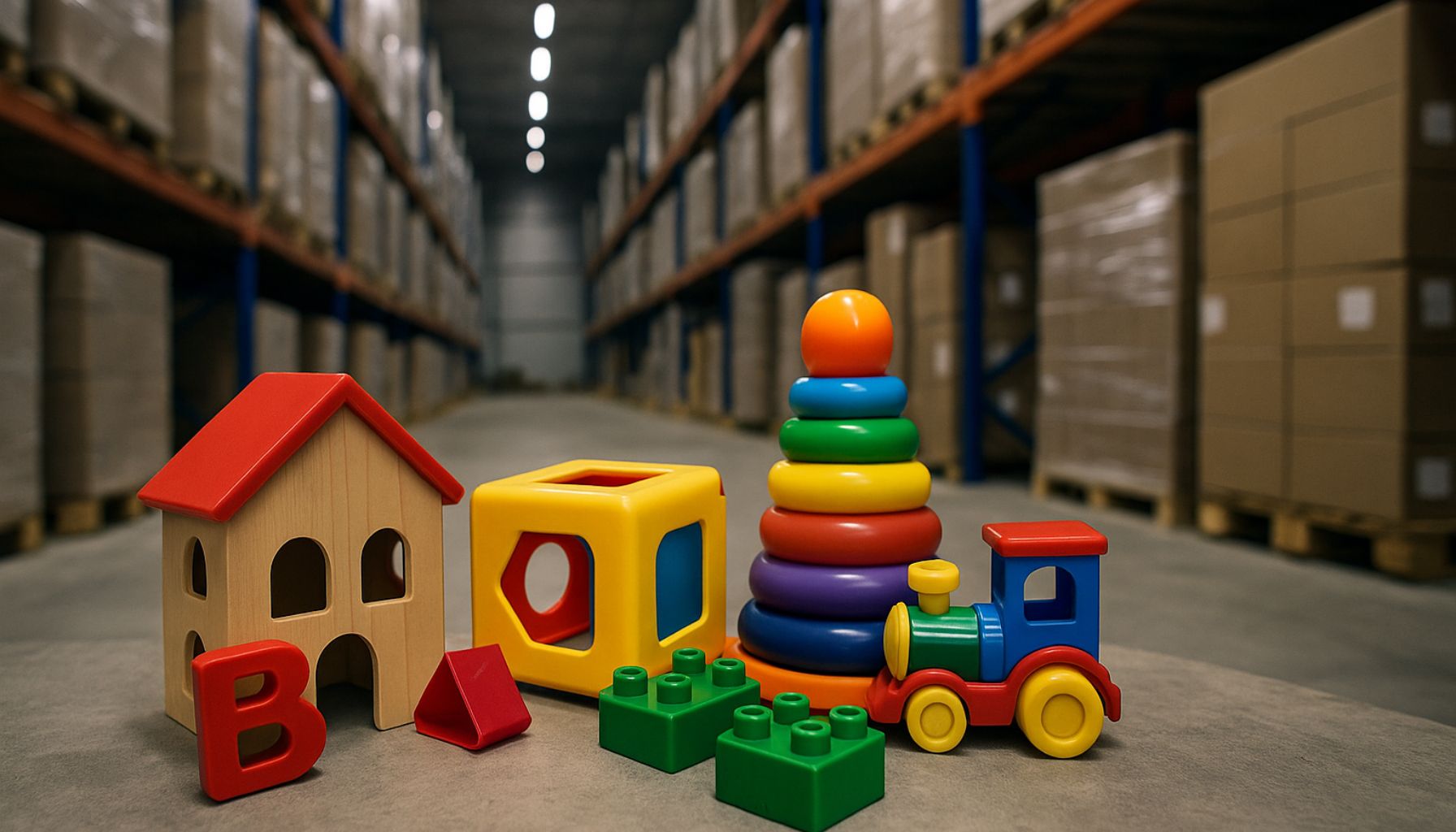VERNON HILLS, ILLINOIS – From a quiet warehouse complex in Vernon Hills, Illinois, a family-owned educational toy company has become an unexpected frontline in the battle over Donald Trump’s latest wave of tariffs. Rick Woldenberg, CEO of Learning Resources and hand2mind, is confronting the sweeping import levies that threaten the foundation of his business—one built over decades by his entrepreneurial parents and now run alongside his wife and children.
The companies, which design and sell hands-on learning aids for children—everything from math manipulatives to coding robots—rely on international supply chains. While their products are developed in the U.S., almost all are manufactured in Asia, mostly in China. These items make their way to the U.S. via West Coast ports or by air through Chicago’s O’Hare Airport, destined for schools, retailers, and online platforms like Scholastic, Walmart, and Amazon.
The business has flourished by balancing affordability with educational innovation. Moving production offshore in the 1980s and 1990s was a calculated response to global competition, enabling growth and job creation at home. Today, the company employs over 500 people, and its products are sold in more than 100 countries. But Trump’s sudden tariff hike—announced on April 2 as “Liberation Day”—upended this model almost overnight.
The new tariffs raised import duties on Chinese goods to an unprecedented 145%, creating a make-or-break scenario for firms like Woldenberg’s. Importers faced the stark choice of absorbing the costs themselves or passing them onto consumers. For Learning Resources and hand2mind, the added expense threatened to erase profits entirely.
As the companies scrambled to assess the fallout, the White House offered a 90-day reprieve: a temporary reduction of the tariff rate to 30% while negotiations continued. But for manufacturers who operate on long production timelines, the reprieve did little to resolve the chaos. Orders are often placed months in advance, meaning businesses are planning under a fog of economic uncertainty.
Rather than wait, Woldenberg launched a legal challenge. On April 22, his companies filed suit in federal court, arguing that the tariffs represented an overreach of executive authority. The complaint framed the levies as a violation of the Constitution, contending that only Congress has the legal authority to impose such sweeping trade restrictions.
The case quickly gained attention, especially since other major toy brands stayed silent. Woldenberg, trained as a lawyer and previously active in opposing a similar Trump-era proposal for a border-adjustment tax in 2017, stepped forward where larger competitors did not.
Free 30-day trial of Amazon Prime
Get your ... Free delivery, award-winning TV, exclusive deals, and more!The legal argument targeted the White House’s reliance on the International Emergency Economic Powers Act of 1977, which allows presidential action during national emergencies but has historically been applied to asset freezes and sanctions—not mass import taxation. Government attorneys claimed national security justified the tariffs, warning that court interference could weaken the president’s leverage in trade negotiations. But the judge was not persuaded.
On May 29, a U.S. District Court judge issued an injunction blocking the government from collecting tariffs from Woldenberg’s companies. The decision came just after a separate court struck down similar tariffs in related lawsuits, reinforcing the position that the administration’s use of emergency powers had overstepped legal boundaries.
Yet for Woldenberg, the legal victory was bittersweet. Appeals were immediate. The injunction was paused pending further review, and the broader tariffs remained in effect. His celebration was tempered by the reality that his business was still operating in uncertainty. Deadlines loomed—especially the expiration of the 90-day tariff reduction on August 12.
In the meantime, his businesses have made difficult decisions. A planned expansion was halted. Some shipments subject to tariffs were ordered anyway, even though they might be sold at a loss. Prices on other products were increased to absorb rising costs. Alternative production sites in India and Vietnam are being explored, but the complexity of relocating manufacturing while maintaining quality remains a major hurdle.
Returning production to the U.S. isn’t feasible, Woldenberg insists. Domestic factories can’t match the pricing or scale needed for the types of products his companies create. In the meantime, rising costs, legal fees, and fluctuating tariff threats continue to test the resilience of the family business.
Woldenberg’s legal team, composed of high-profile corporate attorneys, is pursuing the case as it moves toward the D.C. Circuit Court of Appeals. He expects the matter could ultimately reach the Supreme Court, posing what he sees as a fundamental constitutional question: whether one individual can unilaterally reshape the global economy through tariffs.
As the litigation unfolds, Woldenberg continues to advocate not just for his company, but for the principle of economic stability in a rules-based system. He sees the legal fight as a defense not only of his legacy, but of the thousands of small and mid-sized businesses similarly blindsided by rapidly shifting trade policy.
For now, the costs are real, the rules uncertain, and the stakes increasingly high.

